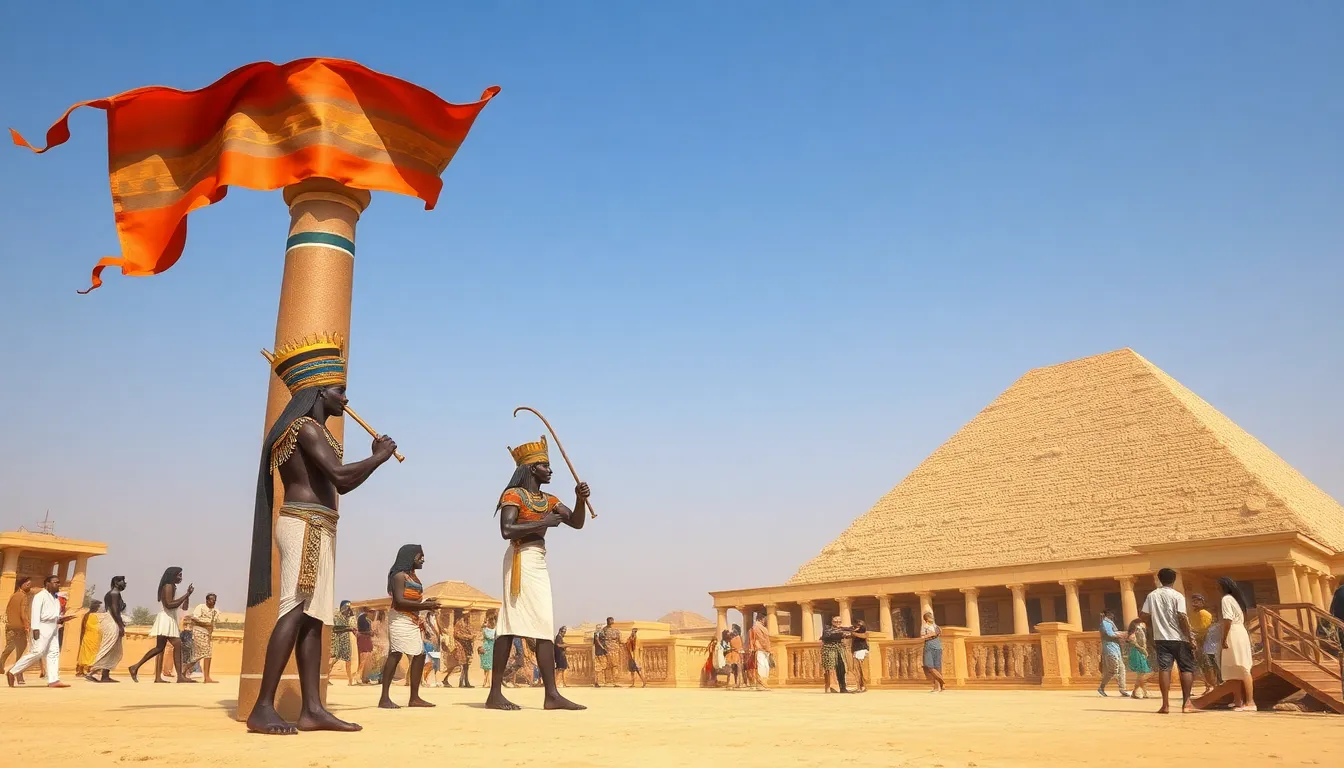The Role of Festivals in Egyptian Society: A Cultural Overview
I. Introduction
Festivals in the context of Egyptian culture are vibrant celebrations that encompass various aspects of social, religious, and cultural life. These events not only mark significant moments in the calendar year but also serve as a means for communities to come together, celebrate their heritage, and express their beliefs.
The importance of festivals in Egyptian society cannot be overstated. They provide a framework for social interaction, religious observance, and cultural expression, reflecting the rich tapestry of Egyptian history and identity. This article will explore the historical significance of festivals in ancient Egypt, the types of festivals celebrated in modern society, their social functions, economic impacts, cultural expressions, challenges they face, and their future outlook.
II. Historical Significance of Festivals in Ancient Egypt
In ancient Egypt, festivals were integral to religious life and were often associated with the worship of gods and goddesses. They were occasions for ritualistic ceremonies, offerings, and communal celebrations that reinforced the connection between the divine and the mortal.
Some of the major festivals celebrated by the ancient Egyptians included:
- Opet Festival: Celebrated in honor of the god Amun, this festival involved a procession from Karnak Temple to Luxor Temple, symbolizing the union of Amun with the pharaoh.
- Wepet-Renpet: Known as the “Opening of the Year,” this festival marked the beginning of the agricultural year and was celebrated with feasting and rituals that ensured a bountiful harvest.
Festivals also aligned with agricultural cycles and seasonal changes, celebrating the inundation of the Nile, harvest times, and other significant agricultural events. These celebrations were vital for ensuring community cohesion and agricultural productivity.
III. Types of Festivals in Modern Egyptian Society
In contemporary Egypt, festivals continue to play a crucial role in society, encompassing religious, national, cultural, and local celebrations.
A. Religious Festivals
Religious festivals are deeply rooted in Islamic traditions, with significant observances including:
- Ramadan: A month of fasting and spiritual reflection culminating in the joyous celebration of Eid al-Fitr.
- Eid al-Fitr: Celebrated at the end of Ramadan, this festival involves communal prayers, feasting, and charity.
- Eid al-Adha: Commemorating the willingness of Ibrahim (Abraham) to sacrifice his son, this festival includes rituals of sacrifice and communal meals.
B. National and Cultural Festivals
National festivals celebrate Egypt’s history and cultural identity, such as:
- Sinai Liberation Day: Commemorates Egypt’s recovery of the Sinai Peninsula.
- Sham El Nessim: An ancient spring festival, celebrating the arrival of spring with picnics and outdoor activities.
C. Local and Community-Based Festivals
Local festivals often revolve around harvests, religious observances, or community milestones, fostering a sense of belonging and local pride.
IV. The Social Function of Festivals
Festivals serve as critical platforms for community bonding and social cohesion. They provide spaces where individuals from diverse backgrounds can come together to celebrate shared beliefs and traditions.
Some key social functions of festivals include:
- Community Bonding: Festivals strengthen relationships among community members, fostering a sense of unity.
- Cultural Identity: They reinforce cultural heritage and identity, ensuring continuity across generations.
- Networking Opportunities: Festivals facilitate social interactions, allowing individuals to connect, share ideas, and collaborate.
V. Economic Impact of Festivals
Festivals significantly contribute to both local and national economies. They attract tourists, stimulate local businesses, and create job opportunities.
A. Contribution to Economies
Festivals boost local economies through:
- Tourism: Attracting visitors from around the globe, especially to historical and cultural events.
- Support for Local Artisans: Festivals provide a platform for local craftspeople and artists to showcase and sell their work.
- Business Opportunities: Local businesses, especially in hospitality, food, and retail, experience increased sales during festival periods.
VI. Festivals and Cultural Expression
Festivals are a rich tapestry of cultural expression, showcasing traditional music, dance, and art forms. They provide an opportunity for artists and performers to share their talents and for communities to celebrate their cultural heritage.
A. Traditional Music, Dance, and Art
During festivals, traditional music and dance take center stage, with performances that reflect Egypt’s diverse cultural landscape.
B. Storytelling and Folklore
Storytelling plays a vital role in festival celebrations, with folklore and legends being passed down through generations, enriching the cultural experience.
C. Modern Adaptations
While maintaining traditional elements, festivals also evolve, incorporating influences from global culture and contemporary trends, creating a dynamic cultural exchange.
VII. Challenges Facing Festivals in Egypt
Despite their importance, festivals in Egypt face several challenges:
A. Economic Challenges
Funding issues can hinder the organization and sustainability of festivals, affecting their scope and impact.
B. Political and Social Factors
Political instability and social tensions can impact the ability to celebrate festivals freely and safely.
C. Globalization Effects
Global influences may dilute traditional practices, leading to concerns about cultural preservation and authenticity.
VIII. Conclusion
Festivals in Egypt play a multifaceted role in society, serving as vital expressions of cultural heritage, religious devotion, and community spirit. They are essential for preserving traditions while also adapting to contemporary realities. As challenges arise, the enduring significance of festivals remains, offering hope for their continued evolution and vibrancy in the future. Festivals not only celebrate the past but also lay the groundwork for a rich cultural legacy for generations to come.




